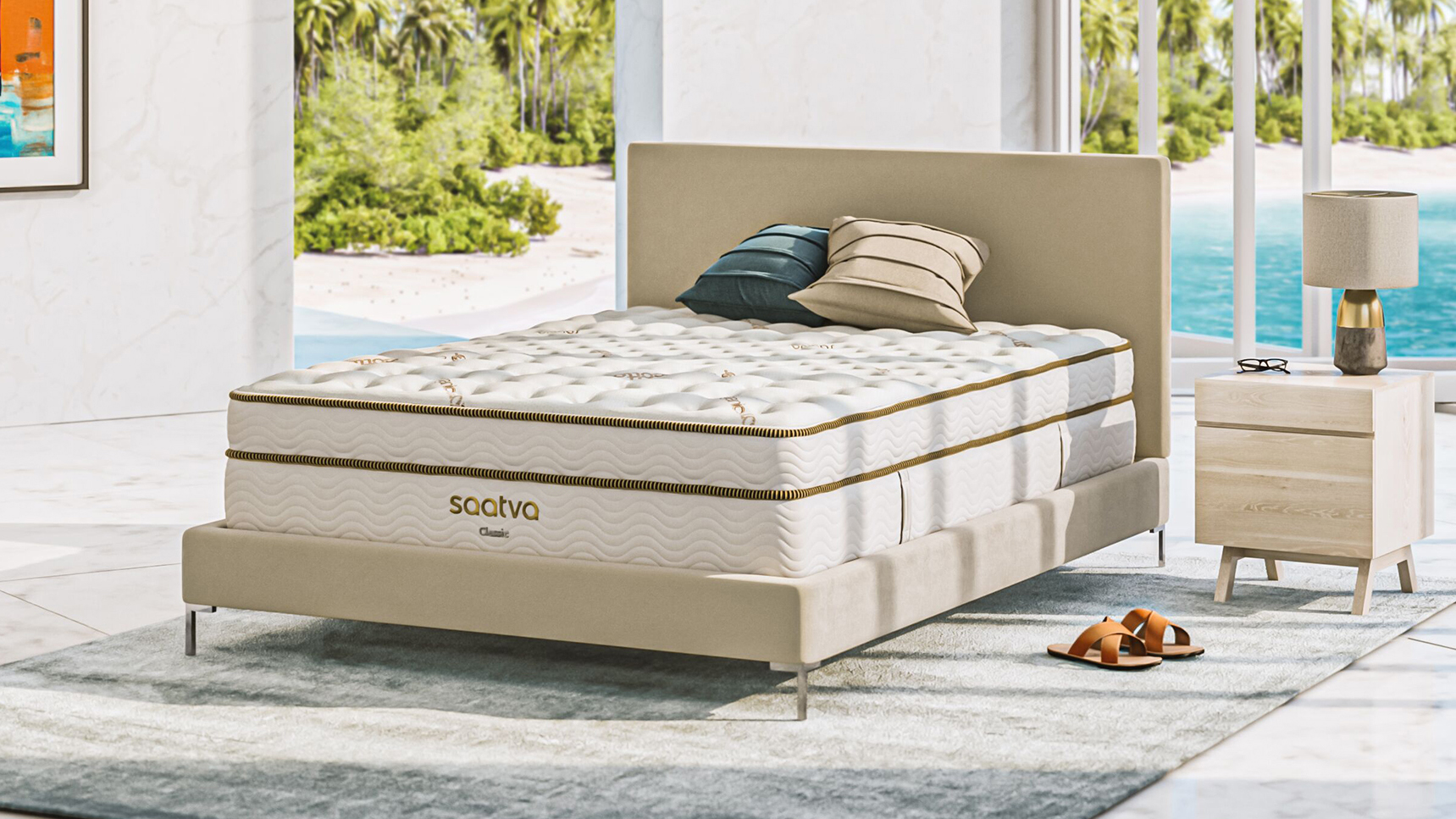
I’ve been TechRadar’s Sleep Editor since the beginning of 2023, and I’ve been writing about mattresses and sleep-related subjects for the past couple of years. And in that time I’ve learned a lot about the mattress business, to the extent that I kind of resent the amount of space in my brain that mattresses are currently taking up.
Give me five minutes and not only can I recommend you the absolute best mattress for your sleep preferences and budget, I can also tell you everything you need to know about paying the lowest price, which can vary between different sleep brands. Obviously this makes me very popular at parties.
And the thing is, most of us don’t have the first clue about buying a mattress; it’s something we only do every few years at best, and I know from experience that we tend to go into it almost totally blind, without any real idea of the different types of mattress and how they can affect your quality of sleep.
If you’re reading this, you’re probably already set on buying a new bed in the Memorial Day mattress sales, but you don’t know what you should be looking for (and you’re maybe a little anxious about making a bad decision). I’m here to demystify the whole process; by the time we’re done here you’ll have a much better idea of the types of mattress on the market (and the main differences between them), you’ll have likely decided which type is best for you, and you’ll be armed with a shortlist of the top options to look for. Easy! So let’s start by looking at the main mattress types.
What to think about when you're shopping for a mattress
Okay, so you've decided that you need a new mattress; what should you look for? There's a lot of choice out there but I can help you narrow things down a lot, by suggesting the questions you need to ask yourself. Once you've had a think about these factors, you'll be a lot closer to finding your perfect bed.
- What's your usual sleeping position? Whether you tend to sleep on your side, your back or your stomach (or if you switch positions a lot in the night) is a major factor in your choice of mattress. In general, side sleepers will get on better with memory foam mattresses, as their sink-in feel provides better pressure relief for hips and shoulders. Back and stomach sleepers would be better suited to innerspring and hybrid mattresses, which tend to deliver firmer support, while restless combination sleepers should concentrate on hybrids. There's plenty of variance in the levels of firmness and support on offer with each type of mattress, though, and of course your own personal preferences will come into play too.
- Do you share a bed with a restless partner? Or do you tend to fidget throughout the night? If so you probably want a bed that isolates motion well. Sprung mattresses are traditionally pretty poor at this, but hybrids do a much better job of reducing motion transfer. Memory foam mattresses tend to be very good at motion isolation, but watch out if you like to change to position a lot in the night, because that sink-in feel can make it harder to move around freely.
- Do you tend to get hot in the night? Nobody likes to wake up in a hot sweat, and some mattresses can make things worse. Memory foam has a reputation for trapping heat and it's not underserved; more recent higher-quality foams are better at dissipating heat, either via cooling covers, heat-conducting infusions or strategically-placed air channels, but ultimate when you're sleeping on a big block of foam there's a good chance of it getting warm at night. For a cooler night's sleep, hybrid and innerspring mattresses have much better airflow, which makes all the difference, while latex mattresses are better at dissipating heat than foam.
- What's your budget? The worst bit about buying a new mattress is the cost. Thinking about it, though, you're going to be sleeping on your new mattress for maybe the next eight years, and that means you'll likely spend something like three years total on it. So maybe it's worth splashing out on a quality option. I'd certainly hesitate to spend less than $1,000 on a queen size hybrid mattress for myself, but you'd have a hard time persuading me to spend over $2,000. And of course you'd never catch me paying the MSRP; except in very rare instances you should always be able to snag a discount, especially around sales events such as Memorial Day.
The different types of mattress
You might now have a better idea of what type of mattress you should be looking for; read on to learn more about each type and to find my top picks in each category.
Memory foam mattresses
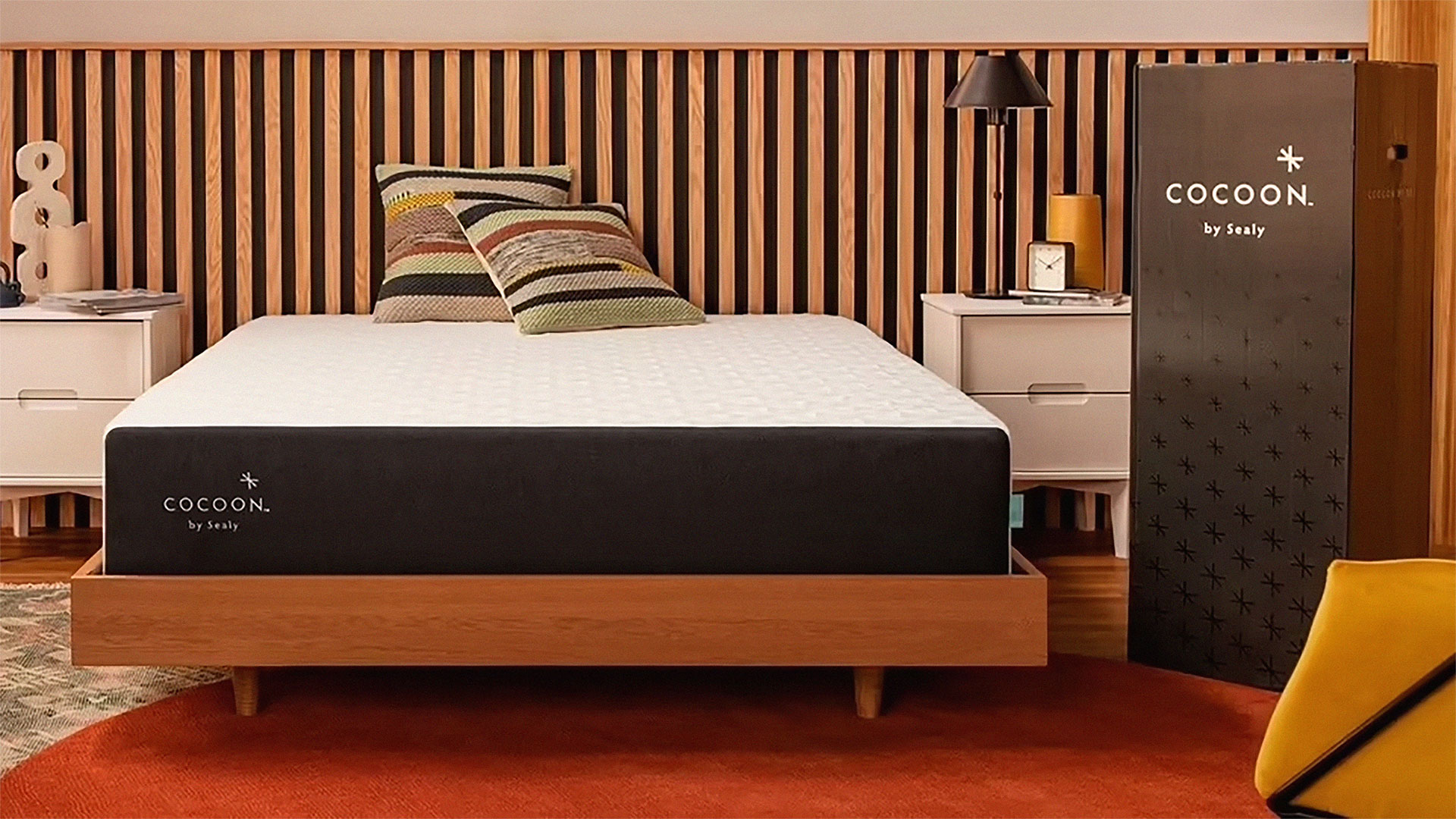
- Usually the cheapest options
- Great if you tend to sleep on your side
- Have a tendency to get warm as you sleep
Memory foam is the main reason why there seem to be so many more mattress brands around these days than ever before (which in turn makes it so hard to choose when the time comes to buy a new mattress). Memory foam mattresses are the most popular type on the market, and it’s easy to see why: their foam contours to your body shape to deliver personalized support and pressure relief, making them a great choice if you suffer from joint pain and want the ultimate in cushioning comfort.
While memory foam is known for its ‘sink-in’ feel, making memory foam mattress a good choice for side sleepers, that doesn’t mean all memory foam mattresses are super-plush; they’re often made with a variety of foams of different densities, which means they can be anything from plush to firm.
The big drawback with memory foam is its tendency to trap heat, and while in more premium and recent memory foam this is less of a problem thanks to the addition of cooling gel and air channels to help dissipate heat, if you have a tendency to sleep hot – or if you live in one of the warmer states – memory foam may not be the best choice for you.
Many people love the enveloping feel of memory foam; personally, though, it’s not for me. I don’t get on well with the off-gassing smell of a fresh memory foam mattress, and while there’s a lot to be said for memory foam’s ability to absorb motion – which makes it a strong choice if you share a bed with a fidgety partner – I prefer a more responsive sleep surface (that is, something with a bit more bounce). Nevertheless I can point you at three of the best memory foam mattresses that I think would be an excellent Memorial Day buy:
- Cocoon by Sealy Chill. The big selling point of this mattress is its cooling tech, something you want to consider if you're opting for memory foam. It comes at a great price for what's on offer, and it delivers in terms of comfort and support. Our Cocoon by Sealy Chill mattress review can tell you more; a queen size should cost you around $699.
- Nectar Memory Foam. The Nectar is one of the most popular memory foam mattresses in the US, and if you want a firmer bed then it's a strong choice at a good price. It has a bit of a tendency to get warm at night, but it's great at motion isolation; see our Nectar mattress review for more details. Expect to pay around $699 for a queen size.
- Saatva Loom & Leaf. It's a much more expensive option, but the Loom & Leaf is what I'd probably choose if I was buying a memory foam mattress. A queen size will generally set you back around $2,000, but for that you'll get maximum comfort and superb pressure relief, although it can get a little warm. Learn more in our Saatva Loom & Leaf review.
Hybrid mattresses
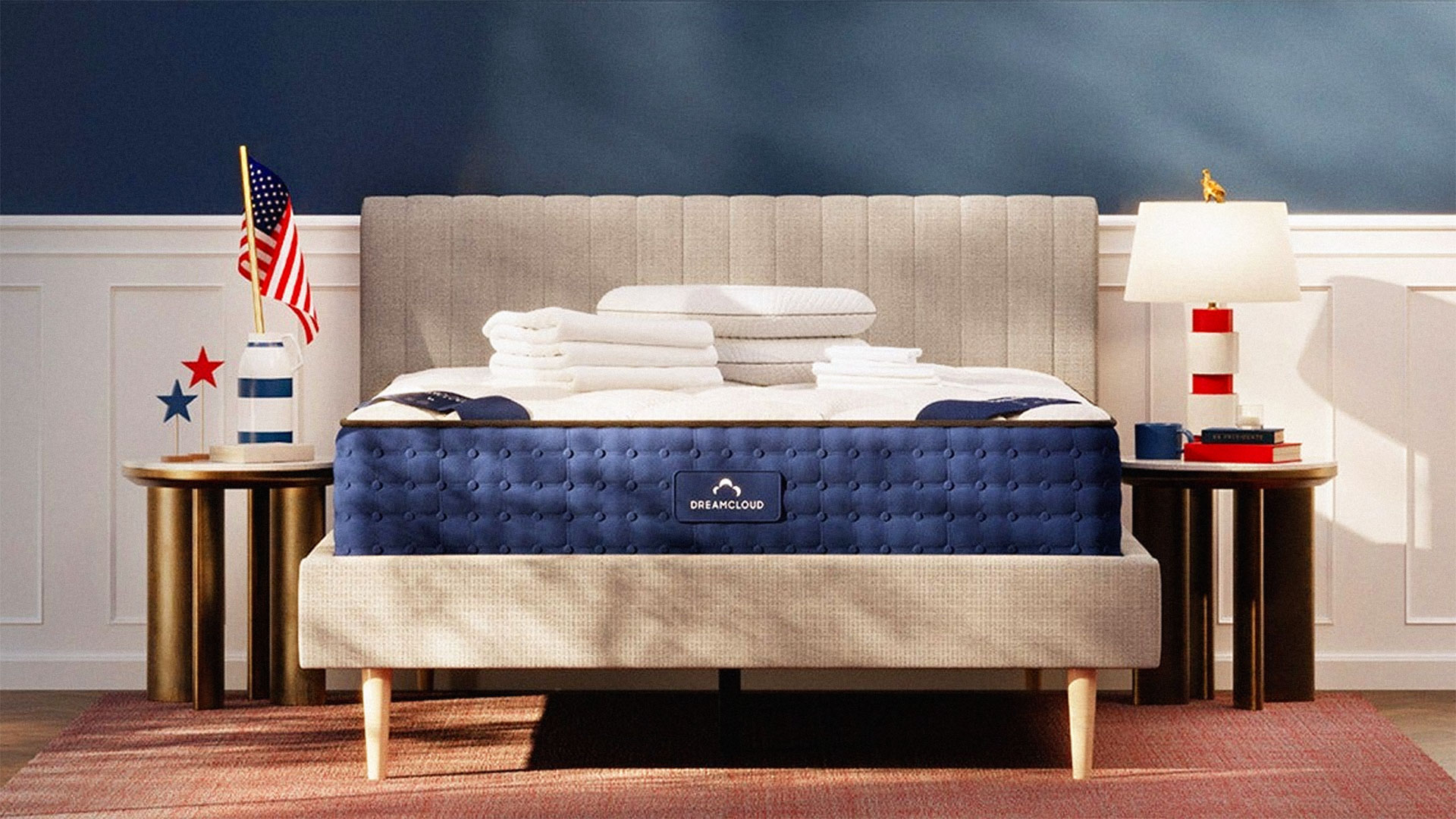
- Generally more expensive
- Good for most sleep styles
- Less likely to trap heat
If, like me, you’re not sold on the idea of an all-foam mattress, your most likely option is going to be a hybrid. Hybrids can generally be defined as being made up of a mixture of foam and springs, which can make the best hybrid mattresses a best-of-both-worlds option; they’ll have the sink-in pressure relief of memory foam, combined with the enhanced support and added bounce that you get from springs.
The actual feel you’ll get, however, largely depends on the various component layers you’ll find in each mattress: things like the ratio of foam to springs, and the size and gauge of the springs used. Some hybrids have thin sprung layers made up of more responsive micro- or nano-coils, while others feature much bigger springs and some may have heavier gauge springs along the sides to provide better edge support. Many sleep brands provide illustrations of their mattresses’ layers on their web sites, and it’s always worth taking a close look at these to get a better idea of what you’ll be buying.
Another advantage to having layers of springs in your mattress is that it’s less likely to heat up in the night; the springs allow air to circulate, which in turn can prevent too much warmth from building up. And while springs can be less effective when it comes to motion isolation, the right mix of coils and foam can mean that many hybrids have as little motion transfer as the best all-foam beds.
If a hybrid mattress seems like the best option for you, I think you should be looking for these models in the Memorial Day mattress sales:
- The DreamCloud is a luxury hybrid at a less than luxury price point, and it ticks pretty much all the boxes, providing good temperature regulation and motion isolation as well as delivering excellent pressure relief. The only real downside is that lighter sleepers may find it just a bit too firm; learn more in our DreamCloud mattress review. A queen size usually costs $999 with a load of bedding included.
- Helix Midnight. You'll find this one at the top of our best mattress for side sleepers roundup, and while back and stomach sleepers might find this one just a little too soft, if you sleep mostly on your side it should you give the perfect amount of comfort and pressure relief. Our Helix Midnight Mattress review covers all the details; a queen size should cost you no more than $1,100.
- Saatva Memory Foam Hybrid. If too-soft mattresses leave you feeling achy and sore, Saatva's Memory Foam Hybrid may be what you need. It's a firm luxury hybrid that still manages to be comfortable in all sleeping positions, and in our Saatva Memory Foam Hybrid mattress review we also rated it for motion isolation temperature regulation and edge support. Expect to pay about $1,526 for a queen size.
Innerspring mattresses
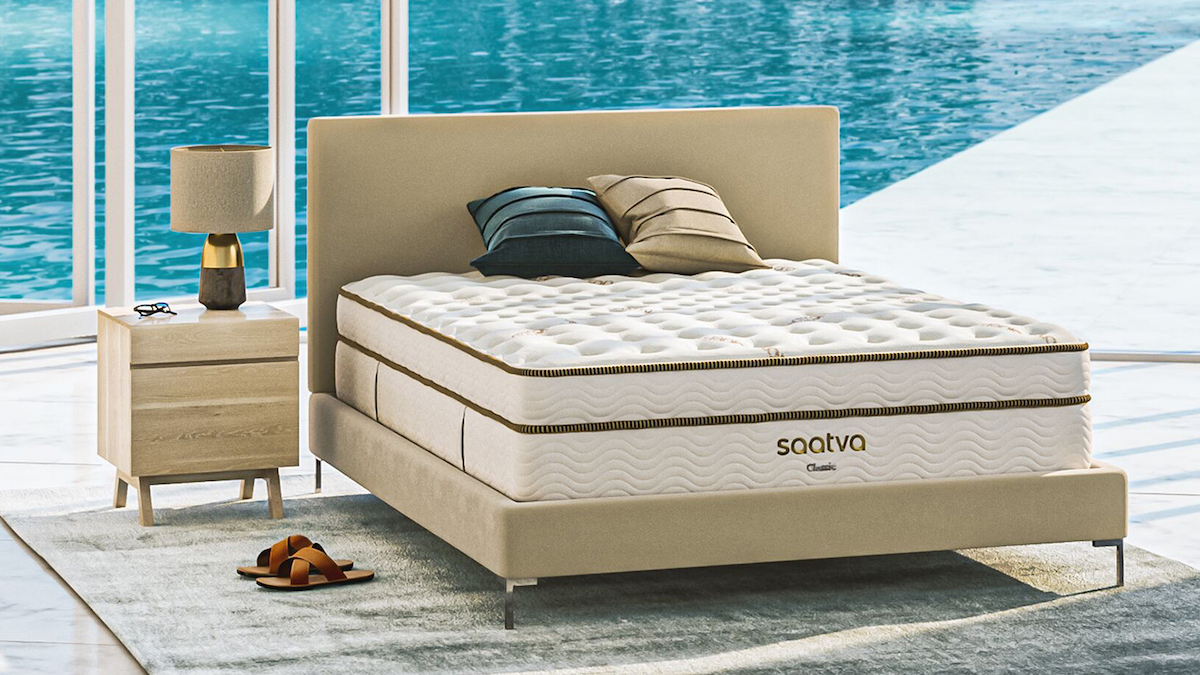
- Often quite expensive
- Better for back and stomach sleepers
- Can feel less stable than mostly-foam beds
The other option I’d be looking at when shopping the Memorial Day mattress sales would be an innerspring mattress; that is, one that’s largely (if not exclusively) made with springs or coils. It’s rare these days that you’ll find a mattress that’s filled entirely with springs; there’ll usually be some kind of comfort layer on top of them. I find there’s quite some gray area between innerspring and hybrid mattresses, and indeed a lot of mattresses I’d class as innerspring are actually sold as hybrids.
A badly-made innerspring mattress can be a terrible thing, with far too much bounce, inadequate motion isolation, not enough support and weak edges that could result in you rolling off in the night. But a really good one will be lovely and supportive, with the feeling that you’re lying on top of it rather than sinking into it, and because so much of the interior is basically air, you won’t find yourself getting overheated in the night.
Those springs can mean less effective motion isolation, but when they’re combined with well-balanced comfort and support layers you’ll get a much steadier bed. Here are my top innerspring picks right now:
- Amerisleep AS3 Hybrid. This medium firmness hybrid is an excellent and supportive option for side sleepers (heavier and stomach sleepers will likely find it a bit too soft). It's good at cooling, too, and actually feels cool to the touch, and it uses AmeriSleep's own Bio-Pur foam instead of memory foam. A queen size is normally $1,499. Learn more in our Amerisleep AS3 Hybrid mattress review.
- Saatva Classic. This one sits proudly at the top of our best mattress guide, and its ranking is well-deserved. It's a handcrafted luxury hybrid innerspring that comes in three firmness options and two heights so that you can find the perfect fit for your preferences. It's great at lumbar support, pressure relief and cooling, and you can usually get a queen size for $1,695. See our Saatva Classic review for details.
- Avocado Green. An innerspring hybrid for anyone who wants a more environmentally-friendly mattress, the Avocado Green mattress is hand-tufted and features organic latex, wool and cotton as well as a thick layer of support coils. Our Avocado Green Mattress review has all the facts; this one's quite pricey and rarely discounted by a lot, and a queen size will usually cost you around $1,800.
Latex mattresses
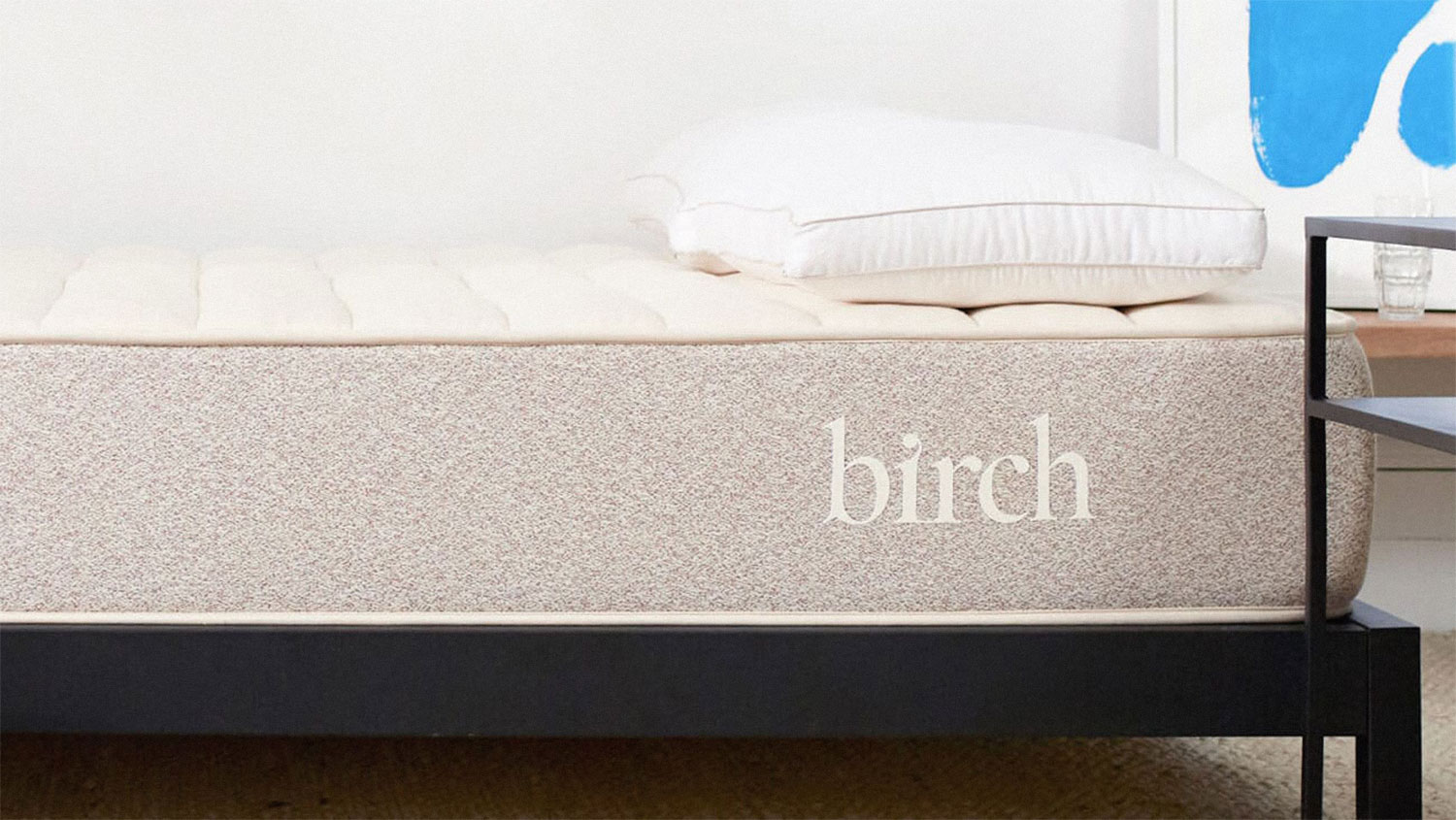
- Pricier than memory foam
- Firmer and more responsive than foam
- Cooler and more eco-friendly
A final option to consider in the Memorial Day mattress sales is a latex mattress. Latex is a great all-natural alternative to memory foam, with a few important differences. It feels quite different and has much more bounce, so you won’t sink into a latex mattress like you would with a memory foam model, and you’ll experience firmer support. Latex is also a lot less likely to retain heat than memory foam, and you won’t experience the sort of off-gassing smell that you’ll get from a new foam mattress.
However latex tends to be much heavier than memory foam and you’ll pay a lot more for a latex mattress than a memory foam model. And because it’s so much more responsive, there’s also an increased danger of motion transfer in the night.
If you’re after the best organic mattress, chances are that it’ll have latex in it to some extent; you’ll find many hybrid mattresses with latex layers in them, but it’s also possible to get all- or mostly-latex models, often with wool or cotton comfort layers balancing out the feel. If that sounds good to you, I’d recommend these options:
- Birch Natural Mattress. The Birch is a latex innerspring hybrid mattress that's made with organic, non-toxic materials including Talalay latex and a layer of individually-wrapped coils. It's breathable and cool, but we'd suggest it may be a little too firm for side sleepers, A queen size is usually around $1,499; find out all you need to know in our Birch Natural Mattress review.
- Nolah Natural 11". Like the Birch above, this Nolah hybrid mattress can be found in our best organic mattress roundup. It's made with Talalay latex, which is much better at pressure relief than other forms of latex, and it's naturally cooling with a breathable and moisture-wicking organic cotton cover. A queen size can usually be bought for something in the region of $1,500.
- Avocado Latex Mattress. This latex mattress is certified organic and non-toxic, and it features nine inches of organic latex as well as organic cotton and wool. It's on final sale at 30% off right now, and when it's gone, it's gone for good, so don't hang around if you're interested. A queen size is available now for $2,099.
Final thoughts
If you're still not entirely sure which mattress you should buy in the Memorial Day mattress sales, I hear you. The fact is that even with everything I know about the mattress business, I'm still not entirely sure which one I'd go for. During the part of the month when I've just been paid I'd probably opt for the Saatva Classic, but as the month wears on I might veer more towards the cheaper DreamCloud.
As I've mentioned, you should spend about as much on your new mattress as you can comfortably afford, and because you can't try before you buy online, you really want a long risk-free trial with your mattress. Ideally, though, you want to avoid having to return it at all, by making the right choice in the first place. When you think about it, returning an unsuitable mattress can be an absolute pain. You’ll have to arrange collection and a refund from the company you bought from, and on top of that you’ll need to get another mattress to replace the one you’re returning.
So take a little time to make absolutely sure about your choice; make a shortlist and check out user reviews for each option, too. Whatever you do, don't get stuck with a mattress you don't like; thankfully there are enough excellent options here to make that unlikely, whatever your budget. Happy shopping!







